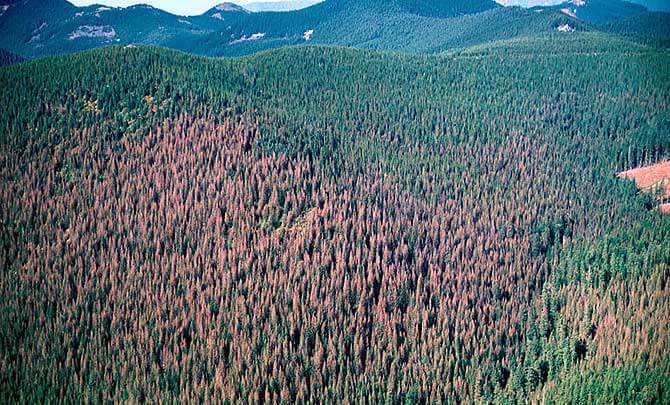Forests have a limited capacity to soak up atmospheric carbon dioxide, according to a new study from Northern Arizona University.
The study, available online in the journal New Phytologist, aimed to explore how rising atmospheric carbon dioxide could alter the carbon and nitrogen content of ecosystems.
By performing tests on subtropical woodland plots over an 11-year period, the researchers found that ecosystem carbon uptake was not significantly increased by the high CO2 treatment—in contrast to expectations. While plants did contain more carbon when CO2 levels were increased, soil actually lost carbon due to microbial decomposition; both factors essentially balanced one another out.
“Nature cannot ‘self-correct’ entirely against climate change, and the scientific community has been both overestimating the impact of plants and underestimating the impact of soil microorganisms in how they absorb CO2 and ultimately impact global warming,” said Bruce Hungate, director of the Center for Ecosystem Science and Society at NAU and lead author on the study.
“Models of land ecosystems need to be revised to represent microbial responses explicitly,” Hungate said. “They’re the carbon balance ‘trump card,’ reversing the effect of plants on total carbon storage.”
According to Hungate, the tests confirmed that although soil microorganisms are microscopic, they are just as important as plants in determining carbon storage by ecosystems.
In addition, the study results indicate that widely accepted carbon cycle models overestimate the role of ecosystems in absorbing carbon from the atmosphere because the models do not represent the responses of soil microorganisms correctly.

